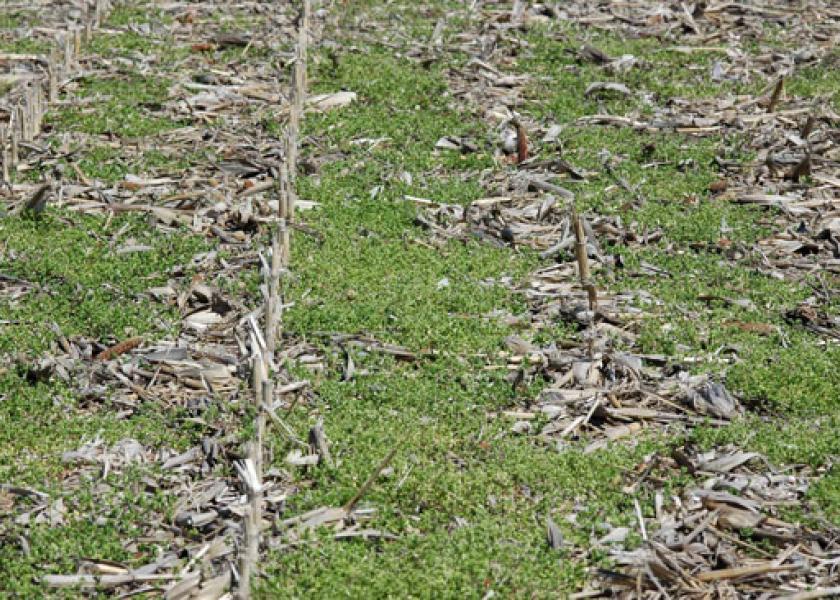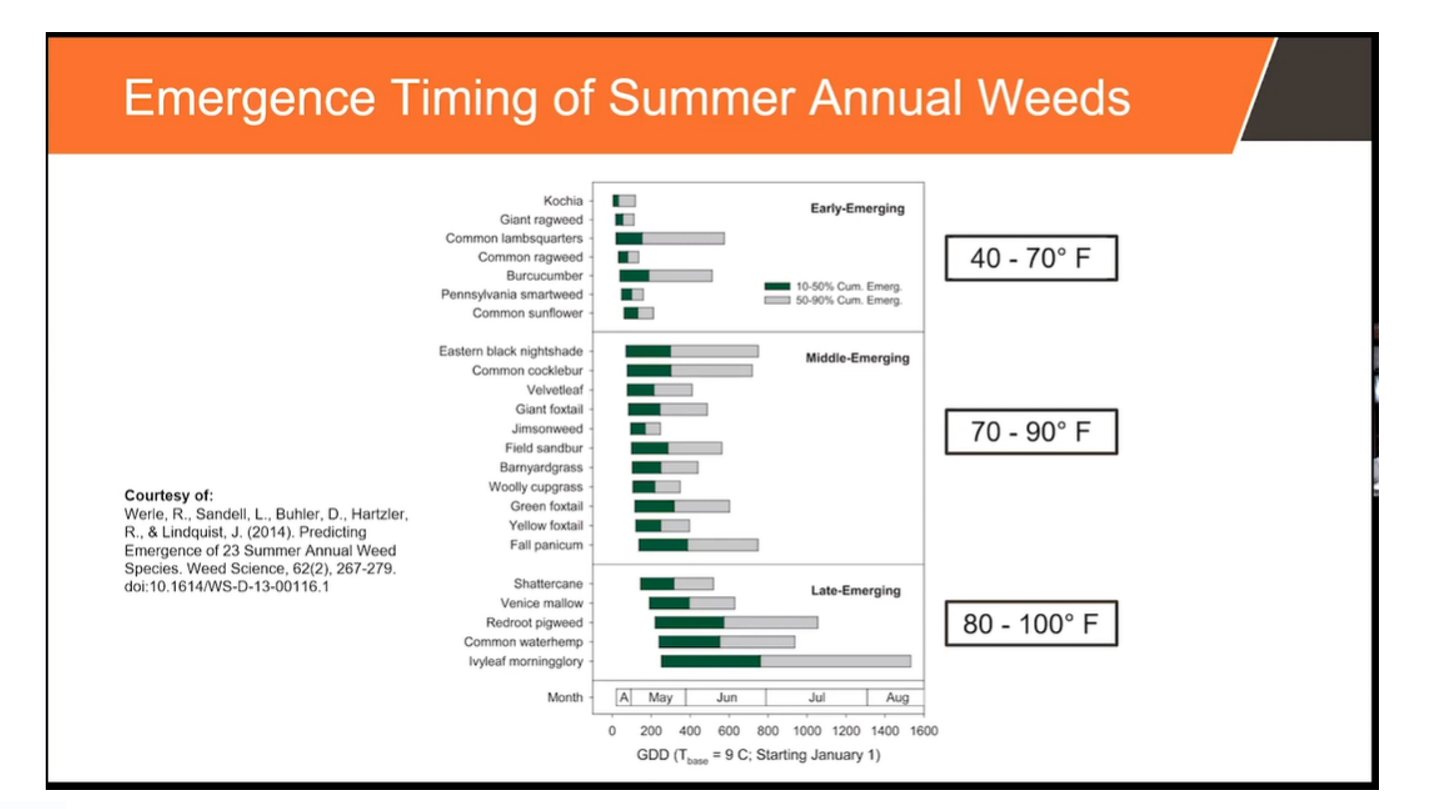Weather Delays Planting In Some Areas, But Weeds Are On Time

Weather conditions have slowed farmers’ planting progress to a snail’s pace in some areas, but that’s had little effect on broadleaf weeds and grasses. Many are growing rapidly in parts of the Midwest.
It’s why Meaghan Anderson, Iowa State University Extension agronomist, encourages farmers to stay on top of their weed-control plans to minimize weed competition this spring in both corn and soybeans.
“Things are getting planted pretty late here in the central part of Iowa, so our crops are going to be smaller and not able to be as competitive with weeds,” she tells Farm Journal.
“But alternatively speaking, farmers might have a better opportunity this season to really take out a lot of those weeds before the crops emerge. We've got waterhemp up already with a leaf on it in some cases,” she adds. See the emergence timing chart below for what weeds you can be expecting now.
Consider Your Options
Anderson says there’s still a possibility that some farmers will be able to use a burndown product or tillage this spring and not rely as heavily on herbicides.
That would be a positive, she says, because some waterhemp populations in her area have five-way resistance to herbicide active ingredients in Groups 2, 5, 9, 14, and 27.
“I’m encouraged that we might be setting ourselves up a little bit better for (weed control) this season,” she says. “Of course, we'll use herbicides later to control through the growing season once things are planted.”
Minor Crop Injury Potential Exists.
Tommy Butts, University of Arkansas weed scientist, says while pre-emergence herbicides are vital for good weed control, an application during cool, wet conditions can increase the potential for crop injury in soybeans.
However, soybean plants can usually metabolize a herbicide into a nonphytotoxic form quickly, so damage is usually superficial. Furthermore, the weather conditions can increase the residual herbicides provide.
“A lot of times, down here in Arkansas, where we're battling heavy pigweed infestations in soybeans, our residuals might only give us three weeks of activity,” Butts says. “But if we spray soybean fields early, the residual may get extended. We might get four or five weeks of control before we have to overlap the next herbicide. It's very environmentally dependent.”
Identify Driver Weeds
Larry Steckel, University of Tennessee Extension weed scientist, encourages farmers to identify the weeds like waterhemp and Palmer amaranth that are most competitive and challenging to control. He calls these “driver weeds.”
Steckel tells farmers to target driver weeds on a field-by-field basis and borrow a practice from cotton and rice farmers – rely on overlapping residual herbicides. The concept is simple: Layer residual herbicides in fields so control is ongoing and doesn’t run out.
In addition, know when to expect driver weeds to show up on your farm. For instance, annual marestail has two emergence periods – in early spring and again from late summer through late fall. That emergence pattern results in its ability to compete with soybeans all season.








